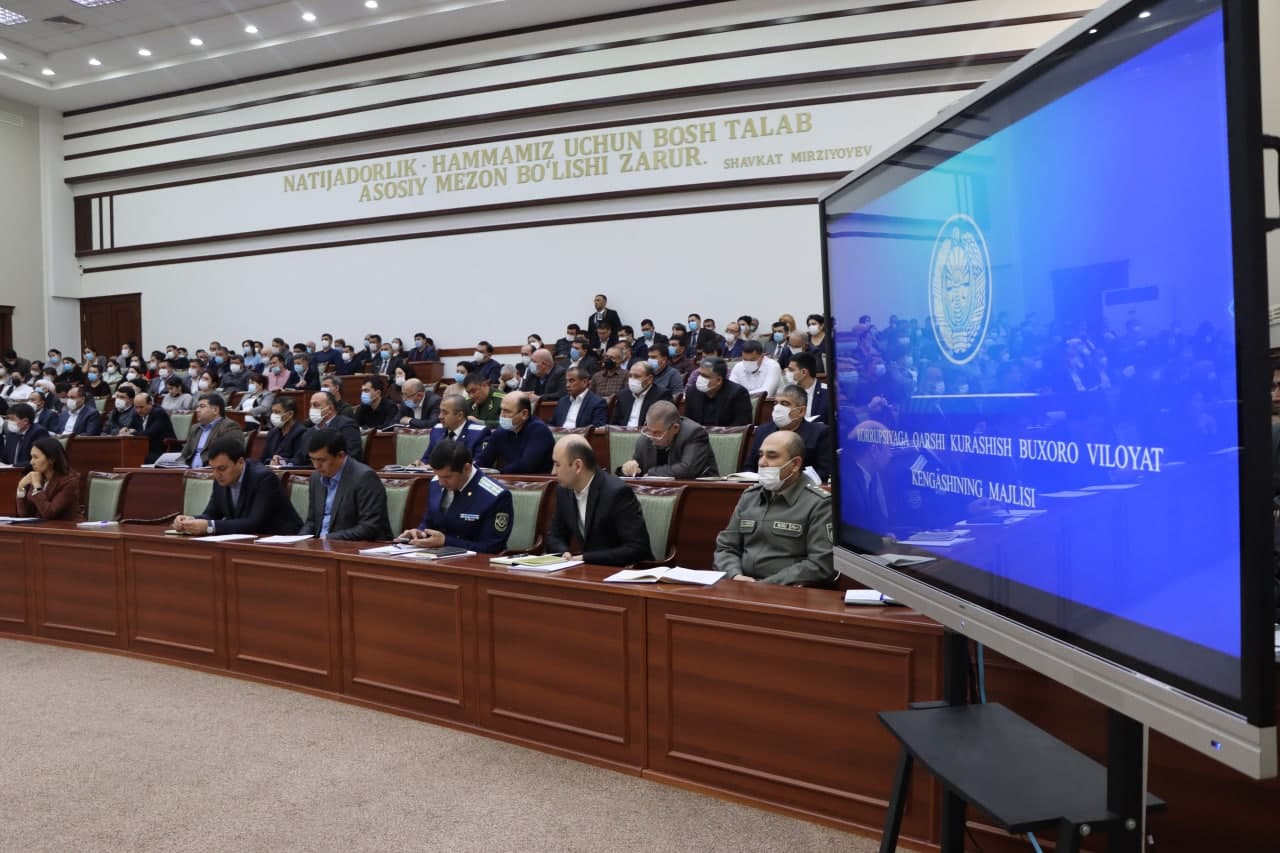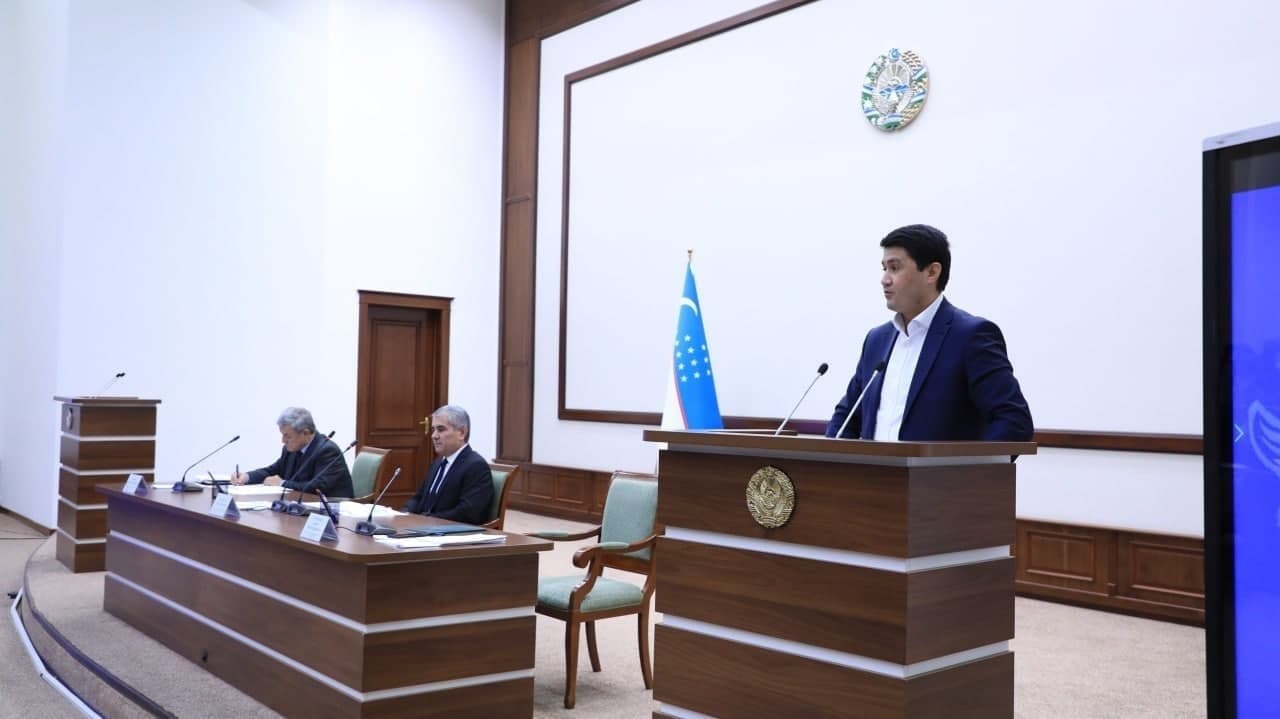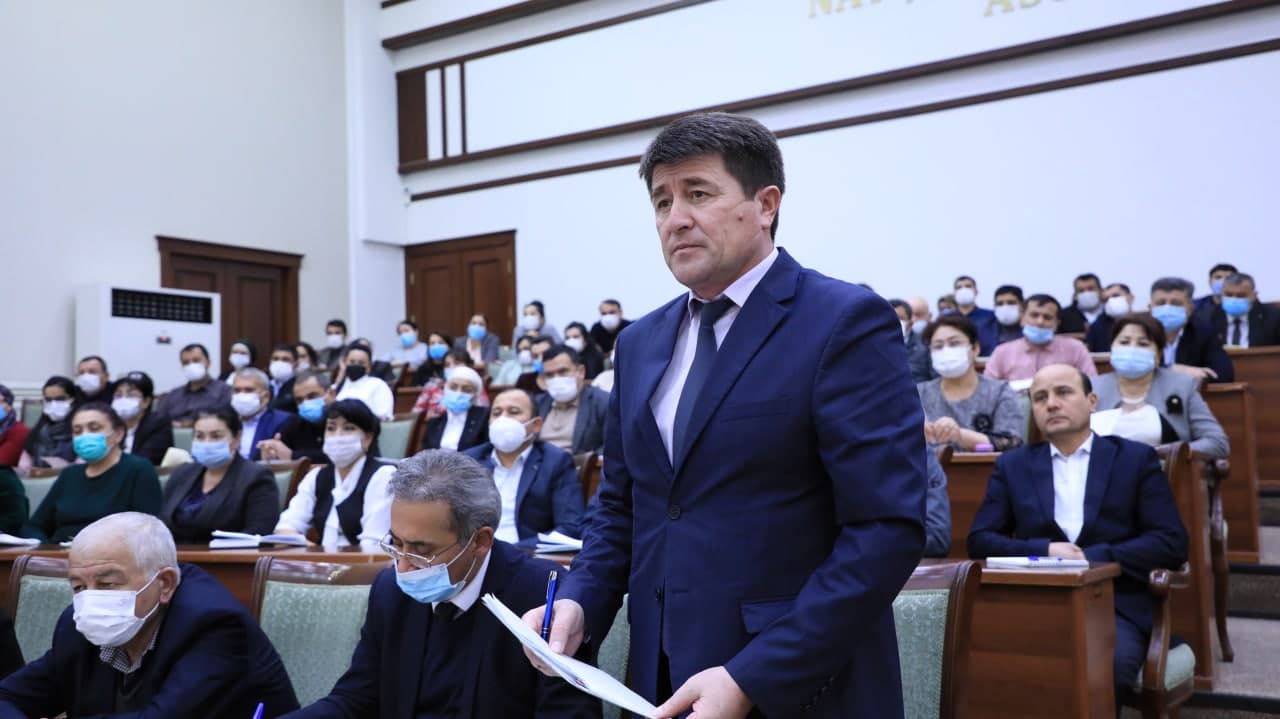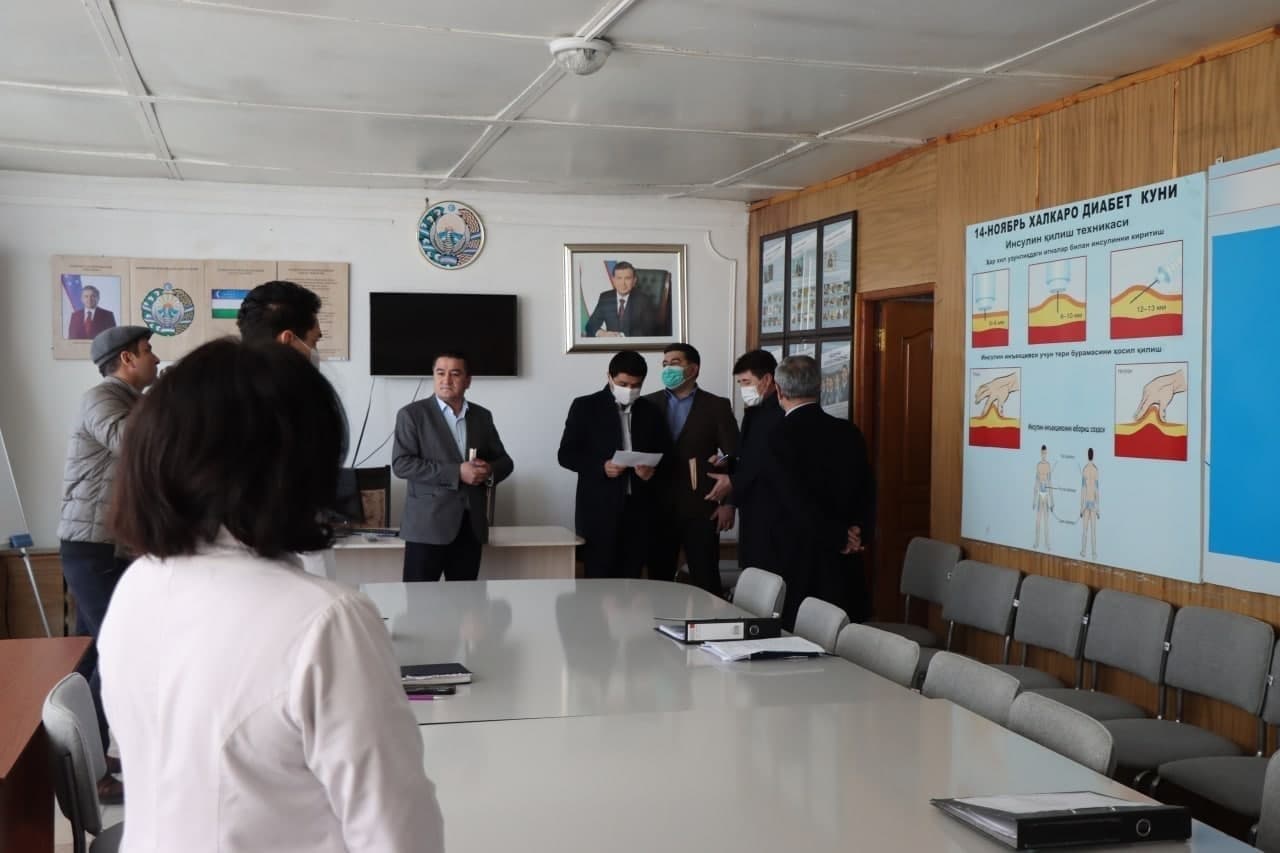On February 15, a working group of the Anti-Corruption Agency visited Bukhara Region to discuss the implementation of effective anti-corruption system, monitor the work done to prevent corruption in the healthcare sector and identify tasks for the future.
During the visit, a meeting of the Bukhara Regional Anti-Corruption Council was held in the regional administration, which was attended by the head and key specialists of the Anti-Corruption Agency, the chairperson of the Committee on Combating Corruption and Judicial and Legal Issues of the Senate of the Oliy Majlis, the head of the regional administration, the prosecutor of the region, members of the Regional Anti-Corruption Council, heads of sectors, members of the Regional Council of People’s Representatives, heads of government and economic agencies, departments, specialists of the internal anti-corruption control structure and media representatives.

Akmal Burkhanov, Director of the Anti-Corruption Agency, delivered a speech at the meeting, drawing the attention of the audience to the priorities of the state policy in the country to combat corruption. In particular, he stressed that the necessary conditions have been created for efficient public control over public administration by ensuring openness and transparency of the activities of government agencies and institutions, as well as accountability of officials to the population.
Akmal Burkhanov also noted that in order to increase the effectiveness of anti-corruption processes in all regions in 2021, Regional Anti-Corruption Councils were established to coordinate the activities of regional government agencies. The main task of the Council is to control the implementation of the ‘Sphere without Corruption’ Project in the region.

At the meeting, the head of the Regional Health Department and the regional prosecutor reported on the work done to prevent corruption in the healthcare sector, and the analysis of corruption crimes in the system.

According to their report, most of the corruption crimes in the region are related to employment, financial fraud, land use, concealing vacancies, and misallocation in hiring.
In particular, the fact that persons responsible for employment in the field of medicine and who have been in office for 5 years or more remain one of the main factors that generate corruption in the field of employment.
Over the past two years, 33 violations have been identified related to the concealment of vacancies in the system by the competent authorities of the region, and the issue of administrative responsibility of guilty officials has been resolved. In addition, the system remains non-transparent due to the lack of an electronic system limiting the human factor in hiring.
At the meeting, instructions were given to take the necessary measures to eliminate those identified shortcomings. In particular, the need to strengthen public control over the healthcare system, further increase the activity of the Regional Anti-Corruption Council in this track was noted. It was also emphasized that it is important to reduce the human factor in hiring, appointments and other issues, to ensure the rule of law in decision-making and to strengthen prosecutorial control over all processes.

In addition, the meeting stressed out the necessity to hold similar analytical, critical meetings, hearings of officials on public procurement, construction, employment of civil servants, land allocation, preschool education and other areas at least twice a quarter, as well as to organize systematic special seminars and trainings for civil servants in this area.
Press Office
The Anti-Corruption Agency







